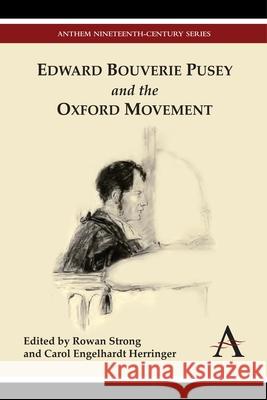Edward Bouverie Pusey and the Oxford Movement » książka
Edward Bouverie Pusey and the Oxford Movement
ISBN-13: 9780857285652 / Angielski / Twarda / 2012 / 174 str.
Edward Bouverie Pusey and the Oxford Movement
ISBN-13: 9780857285652 / Angielski / Twarda / 2012 / 174 str.
(netto: 343,70 VAT: 5%)
Najniższa cena z 30 dni: 356,48
ok. 30 dni roboczych.
Darmowa dostawa!
The Oxford Movement, initiating what is commonly called the Catholic Revival of the Church of England and of global Anglicanism more generally, has been a perennial subject of study by historians since its beginning in the 1830s. But the leader of the movement whose name was most associated with it during the nineteenth century, Edward Bouverie Pusey, has long been neglected by historical studies of the Anglican Catholic Revival. What attention has been paid to him by scholars has produced a largely negative picture of this complex man. This collection of essays seeks to redress the negative and marginalizing historiography of Pusey, in order to better understand both Pusey and his culture. The essays take Pusey's contributions to the Oxford Movement and its theological thinking seriously; most significantly, they endeavour to understand Pusey on his own terms, rather than by comparison with Newman or Keble. This collection of essays is derived from a conference on 'Edward Bouverie Pusey and the Catholic Revival' held at Ascot Priory, England in September 2009. It was attended by scholars from Britain, Europe, the United States and Australia. Broadly, the aim was to resuscitate Pusey as a figure of importance in Oxford Movement studies, in keeping with his contemporary importance during the Movement itself. The essays rescue both Pusey's personality and theology from scholarly marginality, and place him in the same prominent place within the Oxford Movement that he had during his lifetime. Together these essays represent an important step towards giving a more historically accurate view of Pusey. The essays do not subscribe to the hagiography of Liddon's biography, nor do they exhibit the hostility typical of more recent works. Instead, the essays in the volume reveal Pusey as a serious theologian who had a significant impact on the Victorian period, both within the Oxford Movement and in wider areas of church politics and theology. This reassessment is important not merely to rehabilitate Pusey's reputation, but also help contemporary understanding of the Oxford Movement, Anglicanism and British Christianity in the nineteenth century.











